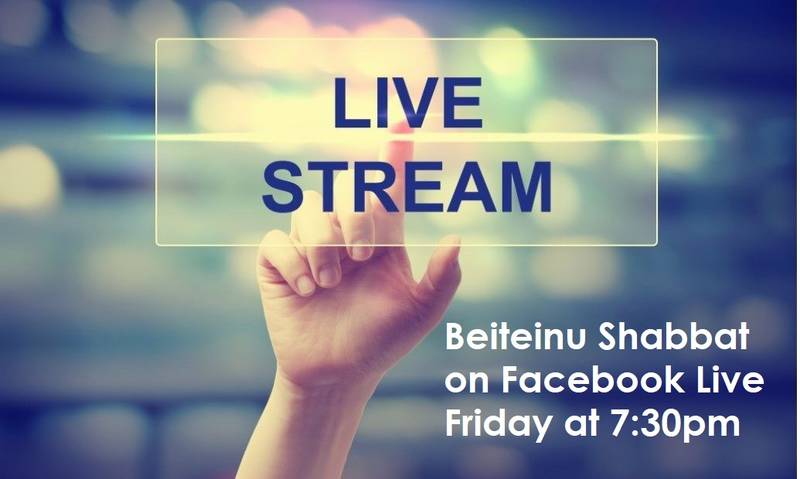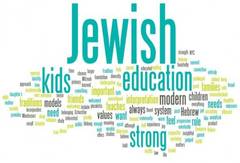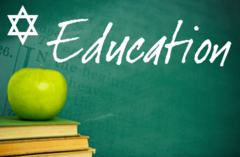Sponsored by: The Wenger Family ( Don and Susan )
Prayer- Personal Connections with G_D
01/19/2016 09:23:40 PM
Jan19
| Author | |
| Date Added | |
| Automatically create summary | |
| Summary |
 Tuesday, January 19th, 2016
Tuesday, January 19th, 2016
During religious prayer services, it has been my experience that only a small percentage of those present participate in the actual worship. Whether it be during the High Holidays or Shabbat, a small number of people in the congregation will sing out in Hebrew or read an English reading out loud. The rest sit as quiet, respectful spectators for the duration of the service. Why the silence? Do many feel embarrassed to sing out loud? Or, is it due to an inability to read Hebrew? Perhaps it was an event, a crises or a tragedy, that has left a person hurt, abandoned and angry with God?
Many people who have attended services at my synagogue have given feedback to me that “traditional prayers” do not inspire them. They say the Hebrew and even the themes of much of the English liturgy are an impediment to their spiritual expression. Sometimes I often feel the same way too. Like my congregants, certain prayers leave me empty.
Jewish liturgy is a collection of ancient and eternal wisdom. The prayers and psalms are dependable and beautifully written. They reflect hopes, dreams and yearnings of our people – past and present. They link us to our community when we recite them together and, to our history when we remember that these very words have been with our people for centuries. Sometimes it is the music written for these words that stir our souls.
Even after recognizing the richness of our prayer tradition, too many say the language and message of our prayers do not reflect what they are feeling or experiencing in real life. As a Rabbi who leads several prayer services a month, it is my goal to provide sacred space, in the midst of the traditional prayers for personal expression. It is my desire to allow those who wish to, an opportunity to exercise their souls. An opportunity to express gratitude, wonder and yearning, in creating their own prayers. Rather than always having our tradition speak for us, we can add our voices along with those of the past. It is possible to draw inspiration from the poets and psalmists of the past, and then find our own way to talk to God.
The prayers that are found in our prayerbooks originated in the depths of human beings, who felt in a moment of life or death, joy or mourning, longing or thanksgiving, a deep need to share their thoughts and feelings with God. This is the essence of religious expression. This does not mean that we should allow the tradition to inhibit us from expressing our own personal blessings and messages to God. Too often we think of prayer as something only accessible to the most holy, religious or spiritual people among us. We have wrongly learned along the way that, in order to pray effectively one must adhere to strict rules and standards. We feel intimidated at the thought that “we might not be doing it right.” This is a mistake. Talking to God is a very natural and personal experience. We can talk to God anywhere: in the park, at work, even in bed. We don’t need to ask anyone else to do it for us.
You might think that I, a Rabbi, enjoy a perfect faith. That I have a direct line with God. If I were to be comletely honest, I would have to say that prayer doesn’t always come easily to me either. There are times when my heart is full of joy and blessing and I can gladly thank God. But there are other times when my heart feels like a stone – heavy, hard, and silent.
I know that each one of us has a prayer in our hearts. What is yours? When the moment is right, close your eyes. Relax. Without censoring or editing, look inside yourself. Find the prayer of your soul. Find it and speak it to God.
What is your experience with prayer? Have you ever had a meaningful talk with God? I would like to use this blog to start a conversation. Lets talk more about this when I see many of you in Yardley this Friday night, or on February 5th in Ambler, for Shabbat worship, friendship and meaningful conversation.
B’Slalom
Rabbi Cove
Fri, 19 April 2024
Upcoming Events
All Events
-
Friday ,
SepSeptember 8 , 2023Beiteinu Virtual Shabbat
Friday, Sep 8th 7:30p to Friday, Jun 21st 8:30p
Join Rabbi Cove for a moving and inspirational shabbat service in the safety of your home. Go to our website https://www.facebook.com/synagoguewithoutwalls/ and scroll to the videos. Click the "LIVE" video -
Tuesday ,
OctOctober 10 , 2023Lafayette Hill Classes
Tuesday, Oct 10th 4:30p to Tuesday, May 14th 7:00p
Rabbi Cove and Beiteinu will be returning to Lafayette Hill- virtually. We will be participating in an educational experience for Children 7-9 years old and 10-12 years old. Rabbi Cove will share his love of Judaism with interactive education and celebration of the various holidays. -
Wednesday ,
OctOctober 11 , 2023Blue Bell Classes
Wednesday, Oct 11th 4:00p to Wednesday, May 15th 5:00p
Rabbi Cove and Beiteinu will be coming to Blue Bell- virtually. We will be participating in an educational experience for Children. Rabbi Cove will share his love of Judaism with interactive education and celebration of the various holidays. -
Wednesday ,
OctOctober 11 , 2023Dresher Classes
Wednesday, Oct 11th 5:30p to Wednesday, May 15th 6:30p
Rabbi Cove and Beiteinu will be back in Dresher virtually. We will be participating in an educational experience for Children. Rabbi Cove will share his love of Judaism with interactive education and celebration of the various holidays. -
Friday ,
MayMay 3 , 2024Beiteinu Shabbat Plymouth Meeting
Friday, May 3rd 12:00a to 9:00p
Join Rabbi Cove and Beiteinu as he welcomes in the Shabbat. Enjoy lively discussions, prayer and friendship
Join Our Mailing List
Fri, 19 April 2024

